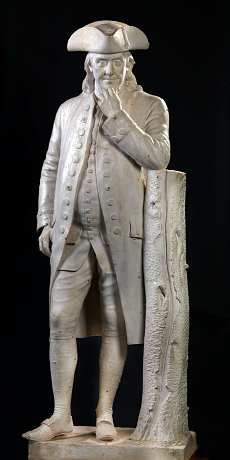
Moral character
Moral character or character (derived from charaktêr) is an analysis of an individual's steady moral qualities. The concept of character can express a variety of attributes, including the presence or lack of virtues such as empathy, courage, fortitude, honesty, and loyalty, or of good behaviors or habits; these attributes are also a part of one's soft skills.
See also: Character structure and good moral character
Moral character refers to a collection of qualities that differentiate one individual from another – although on a cultural level, the group of moral behaviors to which a social group adheres can be said to unite and define it culturally as distinct from others.
Psychologist Lawrence Pervin defines moral character as "a disposition to express behavior in consistent patterns of functions across a range of situations".[1] The philosopher Marie I. George refers to moral character as the "sum of one’s moral habits and dispositions".[2] Aristotle said, "we must take as a sign of states of character the pleasure or pain that ensues on acts."[3]: II.3
Overview[edit]
The word "character" is derived from the Ancient Greek word "charaktêr", referring to a mark impressed upon a coin. Later it came to mean a point by which one thing was told apart from others.[4] There are two approaches when dealing with moral character: Normative ethics involve moral standards that exhibit right and wrong conduct. It is a test of proper behavior and determining what is right and wrong. Applied ethics involve specific and controversial issues along with a moral choice, and tend to involve situations where people are either for or against the issue.[4]
In 1982 Campbell & Bond proposed the following as major sources in influencing character and moral development: heredity, early childhood experience, modeling by important adults and older youth, peer influence, the general physical and social environment, the communications media, the teachings of schools and other institutions, and specific situations and roles that elicit corresponding behavior.[5]
In the military field, character is considered particularly relevant in the leadership development area. Military leaders should not only "know" theoretically the moral values but they must embody these values.[6] Military leaders are expected to lead by example. They demonstrate values and behaviors that they expect their subordinates to follow. Military leaders face ethical and morally challenging issues. Strong moral character is crucial for making these decisions, especially when the consequences of these decisions affect the lives of those under their command.[7]
Scientific experiments[edit]
There have been a number of intriguing experiments to try to empirically examine moral character.[17]
In one experiment that was done in the United States in 1985, a moral decision made by people was influenced by whether or not they had found a dime in a public phone booth. The findings were that 87% of subjects who found a dime in a phone booth mailed a sealed and addressed envelope that was left at the booth in an apparent mistake by someone else, while only 4% of those who did not find a dime helped.[18] This suggested that transient chance factors may matter more than fixed moral character in someone's choice whether to help others. John M. Doris raises the issue of ecological validity – do experimental findings reflect phenomena found in natural contexts. He recognizes that these results are counterintuitive to the way most of us think about morally relevant behavior.[19]
Another experiment asked college students at Cornell to predict how they would behave when faced with one of several moral dilemmas, and to make the same predictions for their peers. Again and again, people predicted that they would be more generous and kind than others. Yet when put into the moral dilemma, the subjects did not behave as generously or as kindly as they had predicted. In psychological terms, the experimental subjects were successfully anticipating the base rate of moral behavior and accurately predicting how often others, in general, would be self-sacrificing.[19]
A study conducted by Philip Zimbardo in the 1970's titled 'The Stanford Prison Experiment'[20] can be used to shed light on the workings of moral character related to roles of power. College students were randomly assigned roles of either a powerless prisoner or a guard in a position of authority. From there participants were told to be completely immersed in their assigned roles. Guard were given few regulations and were allowed to create many of their own rules. The experiment was cut short due to signs of abuse from the guards as well as psychological distress from the prisoners. The study showed how roles of power can tie detrimental behavior to every day individuals thus affecting their moral character.